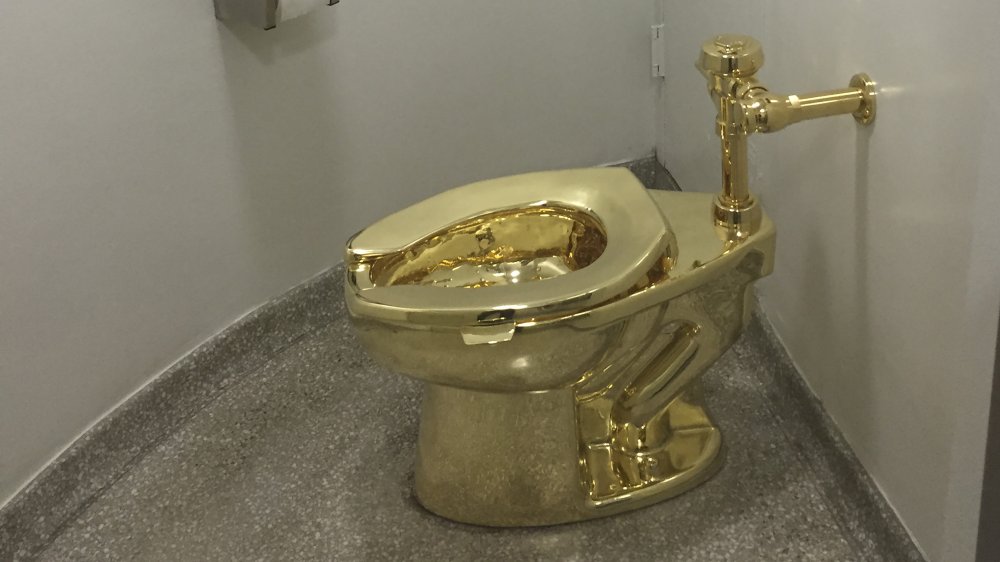The Reason America Is Behind On Toilets
America has long been defined by the proverbial mountains it has chosen to summit, and the rivals it has tried to outpace along the way. The United States had a McDonald's before anyone else did. They either won or lost the space race, depending on where the goalpost was set. In Alaska, the U.S. beat every other country to the punch with the creation of the world's first ever museum dedicated specifically to the history, creation, and implementation of hammers. But today, as a nation, the U.S. must hang its head in shame, because in this lust for glory, the land of the free has been choking on the dust kicked up by other nations at least in one category: namely, toilet innovation.
Where is America's can-do attitude when it comes to can doos? Why are Americans still sitting on a damp porcelain turd hole (to say nothing of people hoarding toilet paper) when Japan practically has transforming robot toilets powered by the Allspark? Why has America failed to heed Walt Disney's call to "keep moving forward" when it comes to the modernization of the whiz palace?
A less than royal flush
The way NPR tells it, the whole thing comes downs to "cultural mores," or the customs attributed to different communities. In Japan, they say, cleanliness is highly important. Hand sanitizer stations are widespread, and customary washrags and towelettes are handed out at eateries. It makes sense, with that in mind, that they'd be more inclined to develop exciting new ways to de-barbarianize the potty-going experience. Built-in bidets, heated seats, and air fresheners are more the rule than the exception when it comes to Japanese toilets.
Bathrooms in other countries around the while can vary tremendously, but the United States, with its dirty toilet water and low standards, is far behind the curve. However, according to Bill Strang, president of corporate strategy and e-commerce at high-end bathroom tech company Toto USA, "There hasn't been a demand for this type of product in the United States." He believes that the cultural normalcy we've assigned to wiping, flushing, and walking away makes more futuristic options a tough subject to approach. Add in the fact that the low stateside demand for a more civilized product means low production runs, and the already expensive products become even pricier.
NPR does note that an ad campaign featuring George Clooney on a smart toilet might get the job done. Clooney's representation failed to comment.

